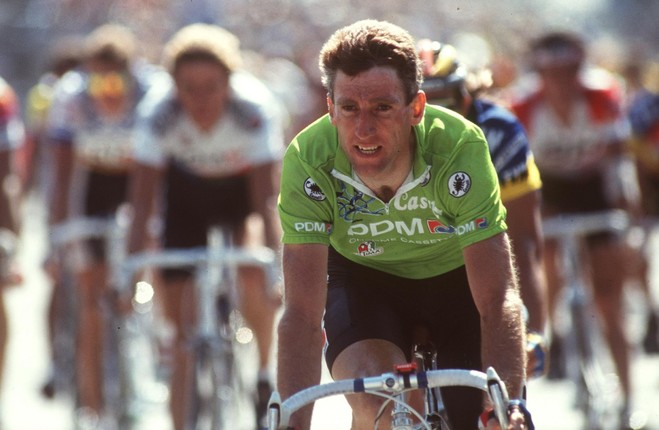SEAN KELLY IS one of the most Ireland’s most successful athletes, but his path through professional cycling might have looked very different if it hadn’t been for Hollywood legends Elizabeth Taylor and Richard Burton.
By the time Kelly called it a day on professional cycling in 1994, he was one of the most experienced riders out there. The Waterford native turned professional in 1977 and won 193 professional races before launching Ireland’s first professional cycling team in 2006: The An Post-Chain Reaction Team.
Before being a regular in the Tour de France and the Vuelta a Espana, however, Kelly was on course to compete in the Olympic Games, which could have kept him in amateur cycling for a lot longer.
It was during a race in 1975 in South Africa that he came across Elizabeth Taylor and Richard Burton and his career took a sharp turn.
During the 1970s in South Africa, many sporting organisations decided to boycott all South African competitions, in protest against the ongoing apartheid.
One of the organisations imposing a ban was the world cycling governing body, the Union Cycliste Internationale (UCI), which meant that any cyclists competing in South Africa would be in very hot water.
While competing at home in the 1975 Tour of Ireland, 18-year-old Kelly met some Scottish cyclists who wanted to form a team for the Rapport Tour, the top race in South Africa at the time.
The plan was to compete in South Africa under false names, as part of a British team, as the Scottish riders had done the previous year. In a time before smartphones or the internet to catch the riders out, they were fairly confident that they could get through the race undetected.
At the time, Kelly was “pretty sure of going to the Olympics on the Irish team, in Montreal” a year later, and wanted to use the South African race as preparation. The riders were facing a long break without a race from September to the following March, and the October race in South Africa was the perfect chance to get valuable training in.
Kelly took the chance and went to South Africa along with the Tour of Ireland winner, Pat McQuaid, who later went on to serve as president of the UCI, and his brother Kieron. The three Irish riders joined the Scots John Curran and Henry Wilbraham to form the Mum for Men team, sponsored by a deodorant company.
“Yes we were aware of [the ban] before we went out but of course riding there as a British team and riding with false names, we never expected that anybody would know about it. But unfortunately, yes, that wasn’t the case”, said Kelly.
It seemed that that the British team had gotten away with it – making it to South Africa and starting the race without incident.
That was until the famous British actors Elizabeth Taylor and Richard Burton showed up.
The pair were after recently getting married for a second time, and were including a stopover in South Africa as part of their honeymoon.
Coincidentally, they landed in Outdshoom in the Western Cape just as the Rapport Tour was passing through.
A local reporter noticed that there was a British team taking part in the race, and looked to set up a publicity picture with the couple.
The team manager attempted to avoid the riders getting their picture taken, for obvious reasons, but in doing so piqued the interest of the reporter, who did some digging and uncovered the real identities of Kelly and the rest of the team.
Word got back to the riders’ home federations, where they were each banned for six months of the following season. Once the International Olympic Committee (IOC) found out, they duly banned the riders from the Olympic Games for life.
The ban had a huge impact on Kelly’s career, as once his Olympic hopes had crumbled, he “then decided to go to France to race with an amateur club, and that’s where [his] professional career took off”.
Kelly recalled that had he competed in the 1976 Olympic Games at that young age, he “might have done ok, finished maybe in the top 10 or 15 and decided to wait another four years and have a go.”
Your destiny maybe. Yeah, that’s the way it is.
The42 is on Instagram! Tap the button below on your phone to follow us!

